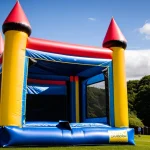For those of you who love to immerse yourselves in the great outdoors, camping is a favoured pastime that allows us to escape the daily grind and reconnect with nature. However, whilst the charm of camping under the stars is undeniable, the experience can be marred by the unwelcome presence of pests. Wasps, ants, mosquitoes and other insects can pose a nuisance, if not a downright hazard, to your camping experience. But fear not, in this article, we will explore the most effective practices for dealing with UK campsite pests, ensuring you can enjoy your time outdoors without the unnecessary pest-related frustration.
Choosing the right camping gear
Before you set out on your camping adventure, it’s crucial to equip yourself with appropriate camping gear. Choosing the right tent, for instance, can make a significant difference in your ability to keep pesky pests at bay.
Also to read : How to find campsites in the UK that have on-site cooking facilities?
When selecting a tent, opt for one with built-in mesh screens on the doors and windows. These screens provide ventilation while preventing pests from entering your living space. Zippered doors are another essential feature, offering an extra layer of protection against bugs.
Also, consider the color of your tent. Bright colors may attract wasps and other insects, so opt for more neutral or earth-toned colors.
In the same genre : What are the guidelines for using biodegradable soaps at UK campsites?
Food and water management
Even in the wild, maintaining good hygiene practices is vital. Insects, like ants and wasps, are attracted to food and water, so managing these resources effectively will help you avoid an infestation.
Always store food in airtight containers and avoid leaving it out in the open. Clean up immediately after meals and dispose of food waste properly. If possible, choose a campsite that provides pest-proof bins for waste disposal.
Water is another factor to consider. Standing water attracts mosquitoes and other pests, so ensure your campsite is well-drained and free from puddles. If you carry water containers, make sure they are tightly sealed when not in use.
Using insect repellents
Insect repellents are a critical tool in your arsenal against bugs. Repellents containing DEET are particularly effective, providing long-lasting protection against mosquitoes, ticks, fleas, and many types of flies.
However, use DEET products cautiously. Avoid applying them on the skin of young children, and never use them on infants. DEET can also damage synthetic fabrics and plastics, so avoid spraying it near your tent or other camping gear.
Alternatively, you can opt for natural repellents like citronella, eucalyptus, or lemongrass oil. While these might not be as effective as DEET, they offer a safer and more environmentally friendly option.
Pest control measures
Once you’ve set up camp, there are several proactive steps you can take to control pests and deter them from invading your space.
Lighting citronella candles or burning insect-repelling incense can create a bug-free perimeter around your campsite. However, remember to extinguish any flames before leaving your site or going to bed.
You can also make a DIY insect trap using a plastic bottle, sugar water, and a little yeast. The yeast reacts with the sugar to produce carbon dioxide, which attracts mosquitoes. They fly into the bottle but cannot escape, thereby reducing their population around your campsite.
Dealing with wasps and ants
Wasps and ants can be particularly troublesome for campers. Both are attracted to food and can become aggressive when threatened.
To keep wasps at bay, avoid wearing bright colors or floral patterns, as they are known to attract these insects. If you encounter a wasp, stay calm, and avoid swatting at it, as this can provoke it to sting.
Ants, on the other hand, follow scent trails to locate food. To discourage ants from invading your campsite, clean up food spills immediately and store food in airtight containers.
Whether you’re a seasoned camper or a novice, dealing with pests is an inevitable part of the camping experience. However, with the right preparation and proactive measures, you can significantly reduce the presence of these unwanted guests and enjoy your camping trip to the fullest.
Utilizing the Right Clothing and Equipment
A practical yet often overlooked aspect of pest control during a camping trip is your choice of clothing and equipment. What you wear and bring can have a significant impact on your ability to keep bugs and insects at bay.
It’s advisable to wear long-sleeved shirts and long pants when camping. These items offer more coverage and can protect your skin from biting or stinging insects. Opt for light-colored clothing as dark colors tend to attract bugs. It’s also essential to avoid wearing perfumes or scented lotions, as these can attract unwanted pests.
In addition to clothing, another vital piece of camping gear is a good sleeping bag. Opt for one that is insulated and comes with a bug net. This will help keep bugs out while you sleep. If you’re camping in an area known for ticks, consider purchasing a tick-repelling sleeping bag liner.
There are also insect-repellent camping equipment options available, such as bug-repelling lanterns or bug-free hammocks. These products are infused with insect repellents and can create an additional protective barrier around your camping tent.
Controlling bugs and insects during your camping experience requires strategic thinking and planning. Using the right clothing and equipment can greatly contribute to keeping the pests away, ensuring a smooth and enjoyable outdoor adventure.
Dealing with pests is an undeniably challenging aspect of any outdoor adventure. However, it should not deter you from enjoying the incredible experience camping in the great outdoors offers. Using a combination of the right camping gear, proper food and water management, effective insect repellents, and proactive pest control measures can significantly mitigate the risks associated with UK campsite pests.
Remember, when it comes to pest control, prevention is better than cure. So, take the time to prepare adequately before you set out on your camping trip. Pay attention to your clothing and the equipment you bring. Maintain cleanliness in your camping area, especially where food and water are concerned, and make use of tools like DEET or natural repellents to keep bugs and insects away.
Ultimately, it comes down to a balance. While you want to ensure you’re protected from pests, you also want to enjoy the freedom and serenity that comes with disconnecting from the daily grind and reconnecting with nature. With the right preparation, you can achieve both, making your camping trip a memorable and pest-free experience.











